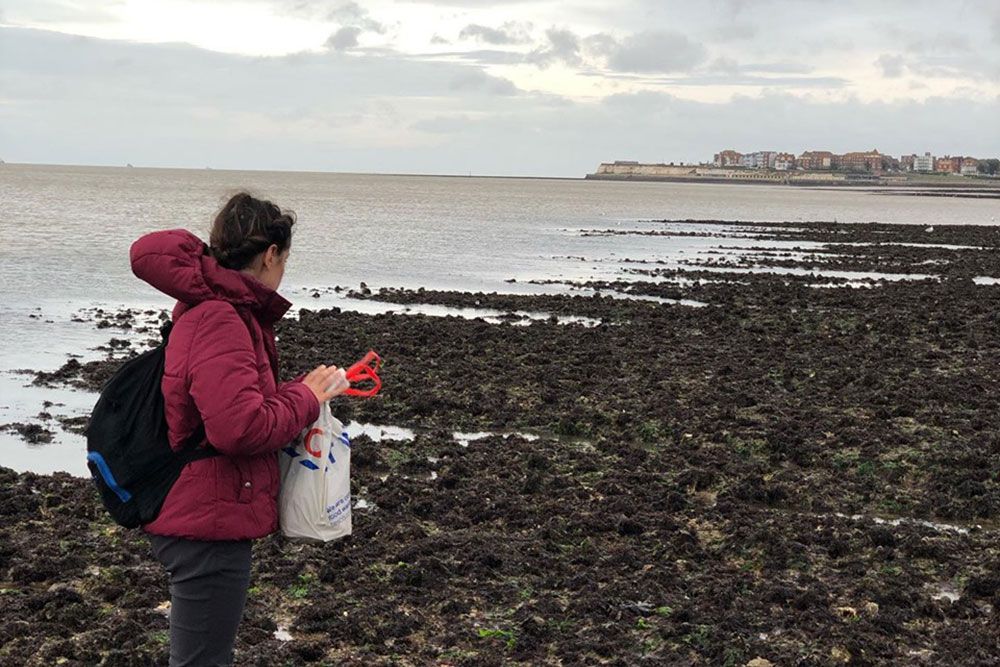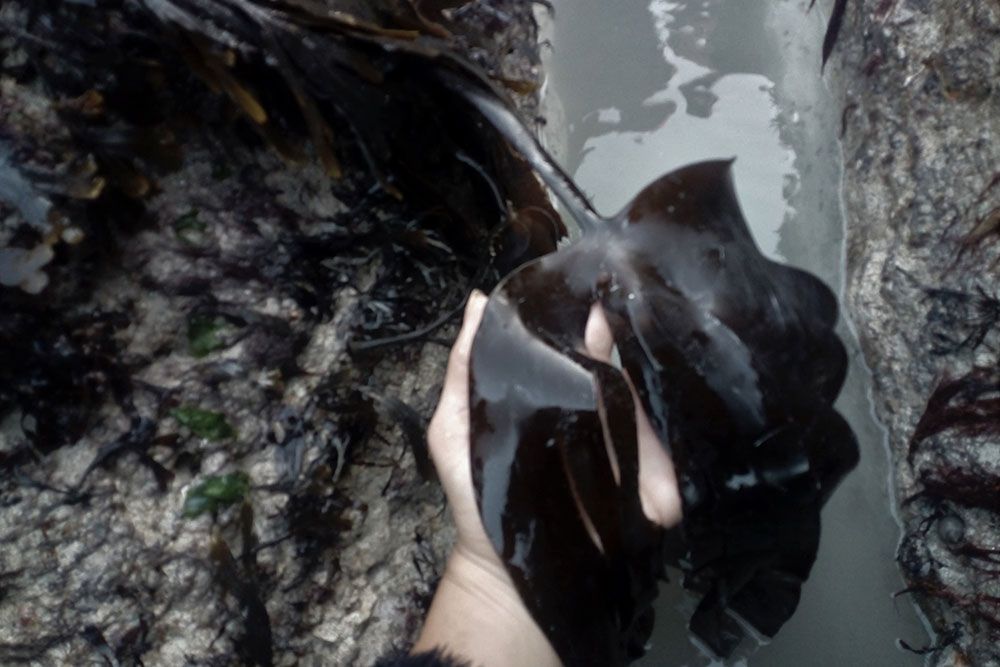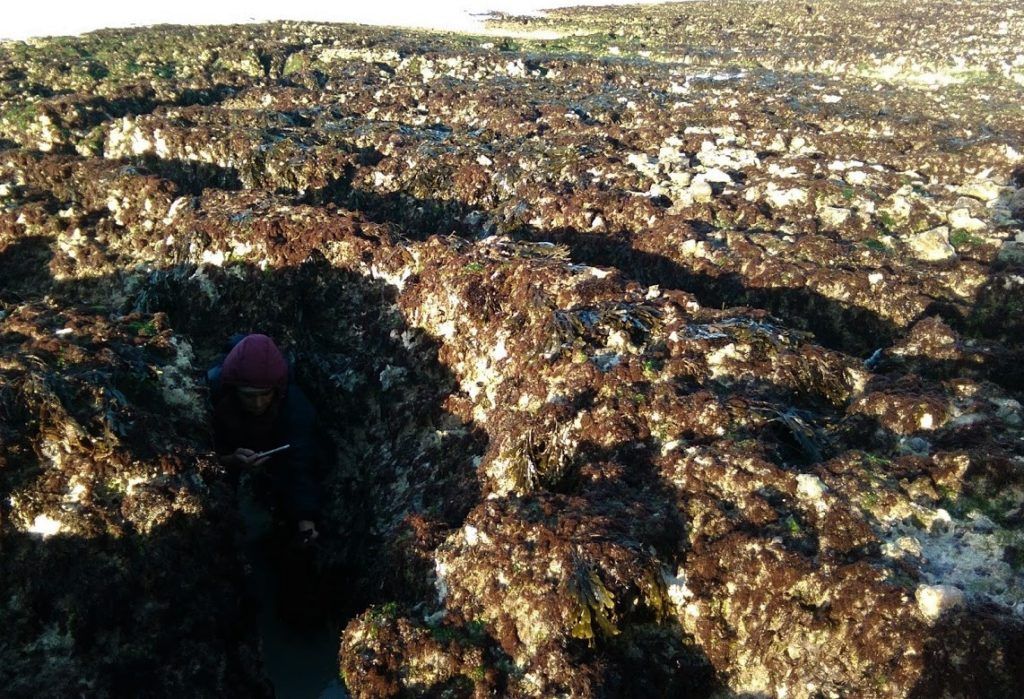Danai Kontou, one of our PTES interns, is studying kelp in UK waters. Kelp are considered the forests of the ocean and provide an important habitat for many other species, forming an important part of the ocean’s biodiversity. Sadly, it is suffering a worldwide decline, as it’s vulnerable to climate change, ocean warming and acidification.
Danai is identifying the different species of UK kelp by looking at their DNA. Their distribution can then be identified and mapped. This will help inform management of the different coastal regions and support reintroductions where kelp has been overharvested and lost. She’s been out collecting kelp samples, looking at historical records and extracting DNA.
Danai’s diary
We’ve been out in the field collecting UK kelp samples at low tide from Sussex (Seaford and Selsey) and Kent (Birchington and Margate) and had some additional samples sent over from Cornwall (Newquay).
We had a meeting with the Sussex Wildlife Trust and IFCA (Association of Inshore Fisheries and Conservation Authorities) to discuss how our results can help them with the establishment of a marine protected area off the coast of Sussex and plan a potential reestablishment of the kelp forest that was lost in the 80s.
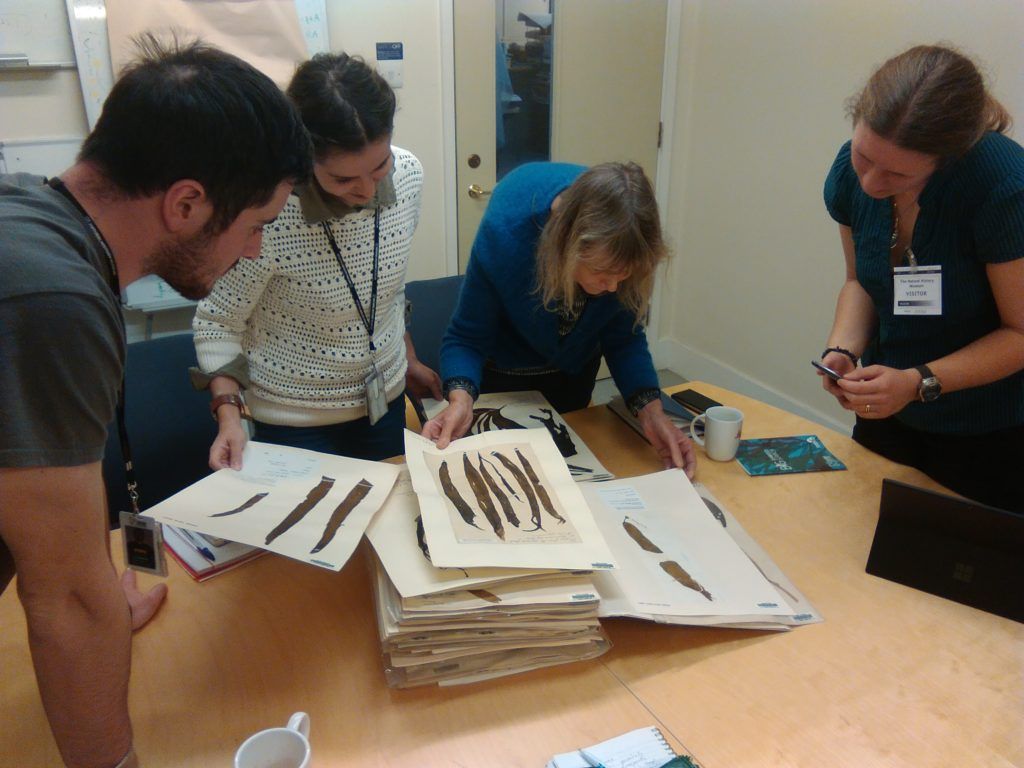
We’ve also looked through UK kelp collections from the Natural History Museum’s herbarium with the help of expert Prof Juliet Brodie, to get a better understanding of the area’s marine biodiversity history.
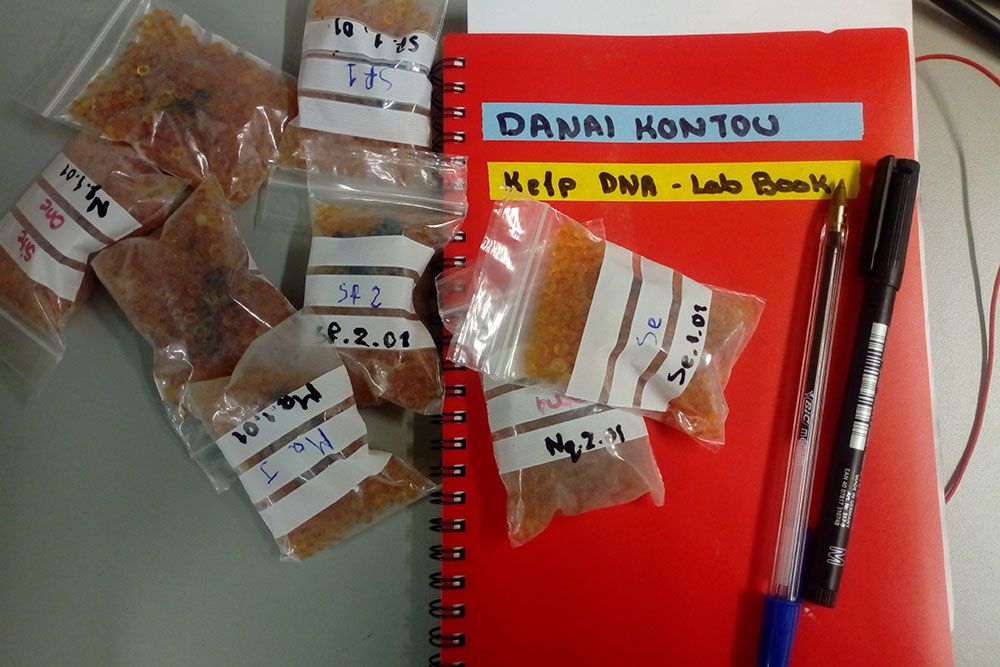
Samples 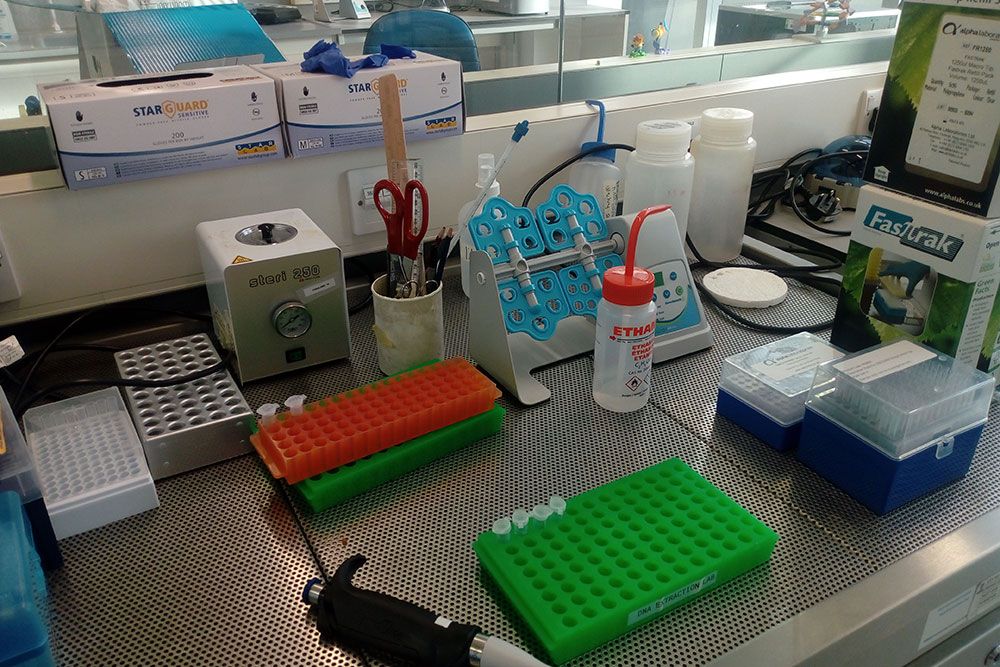
Workbench
And we’ve finalised a protocol for DNA extraction from L. digitata. We’re using a modified CTAB protocol (a cost-effective protocol commonly used to extract DNA from plant material). It includes many clean up steps with harsh chemicals in order to purify the DNA, because kelp is notoriously full of chemical compounds that inhibit the extraction process (main issue being the polysaccharide ‘’glue’’ they excrete when damaged).
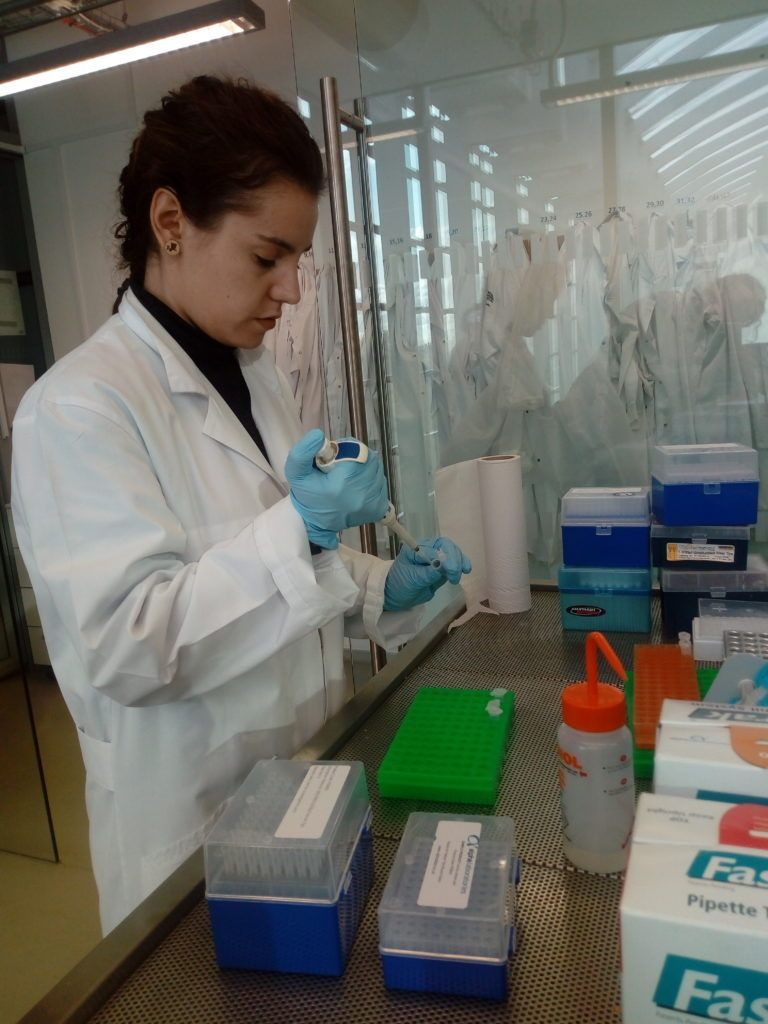
In the lab 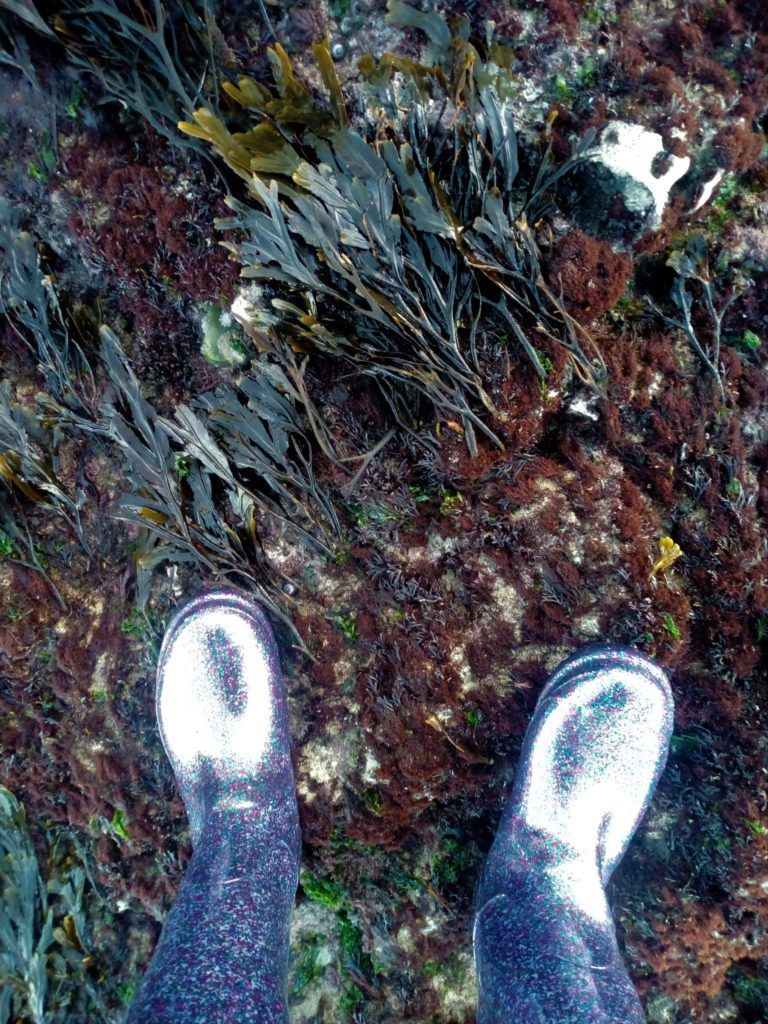
13km coast walk looking for kelp in my sparkly wellies!
Read more about Danai’s project here:

